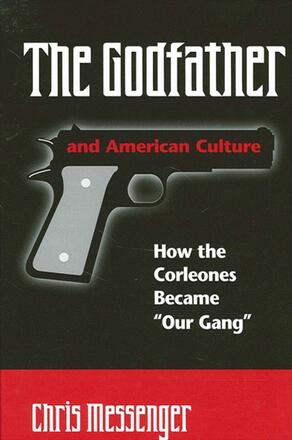
The Godfather and American Culture
How the Corleones Became "Our Gang"
Alternative formats available from:
A comprehensive look at a classic work of popular fiction and its hold on the American imagination.
Description
Mario Puzo's The Godfather is an American pop phenomenon whose driving force is reflected not only in book sales and cable television movie marathons but also in such related works as the hit television series The Sopranos. In The Godfather and American Culture, Chris Messenger offers an important and comprehensive study of this classic work of popular fiction and its hold on the American imagination. As Messenger shows, the Corleones have indeed become "our gang," and we see our family business in America reflected in them. Examining The Godfather and its many incarnations within a variety of texts and contexts, Messenger also addresses Puzo's inconsistent affiliation with his Italian heritage, his denial of the multiethnic literary subject, and his decades-long struggle for respect as a writer in contemporary America. The study ultimately offers a way of looking at the much-maligned genre of popular or bestselling fiction itself. By placing both the novel and films within a number of revealing critical situations, Messenger addresses the continuing problem of how we talk about elite and popular fiction in America—and what we mean when we take sides.
Chris Messenger is Professor of English at the University of Illinois at Chicago. He is the author of Sport and the Spirit of Play in American Fiction: Hawthorne to Faulkner and Sport and the Spirit of Play in Contemporary American Fiction; and is the coauthor, with Chet Walker, of Long Time Coming: A Black Athlete's Coming-of-Age in America.
Reviews
"Messenger's book is a phenomenon … [a] comprehensive, intelligent, and definitive study of what is surely the twentieth century's most telling fable of the complex intersections of work and family in American culture." — Electronic Book Review
"What Messenger has done in this book is to place Mario Puzo nicely into both a United States popular-cultural paradigm as well as into the more high-brow category of American writers. The fact that he then engages in a wider discourse of printed and film narrative becomes even more impressive for the manner in which he so adroitly succeeds." — Anthony Julian Tamburri, author of A Semiotic of Ethnicity: In (Re)cognition of the Italian/American Writer
"Any study of The Godfather would be important in itself, because Puzo's novel is a landmark of popular culture. If Messenger were only concerned with reading The Godfather in cultural isolation, this would be the best aesthetic analysis of Puzo that we've seen. But Messenger has done more: he's created a landmark in the study of popular culture." — Frank Lentricchia, author of The Music of the Inferno